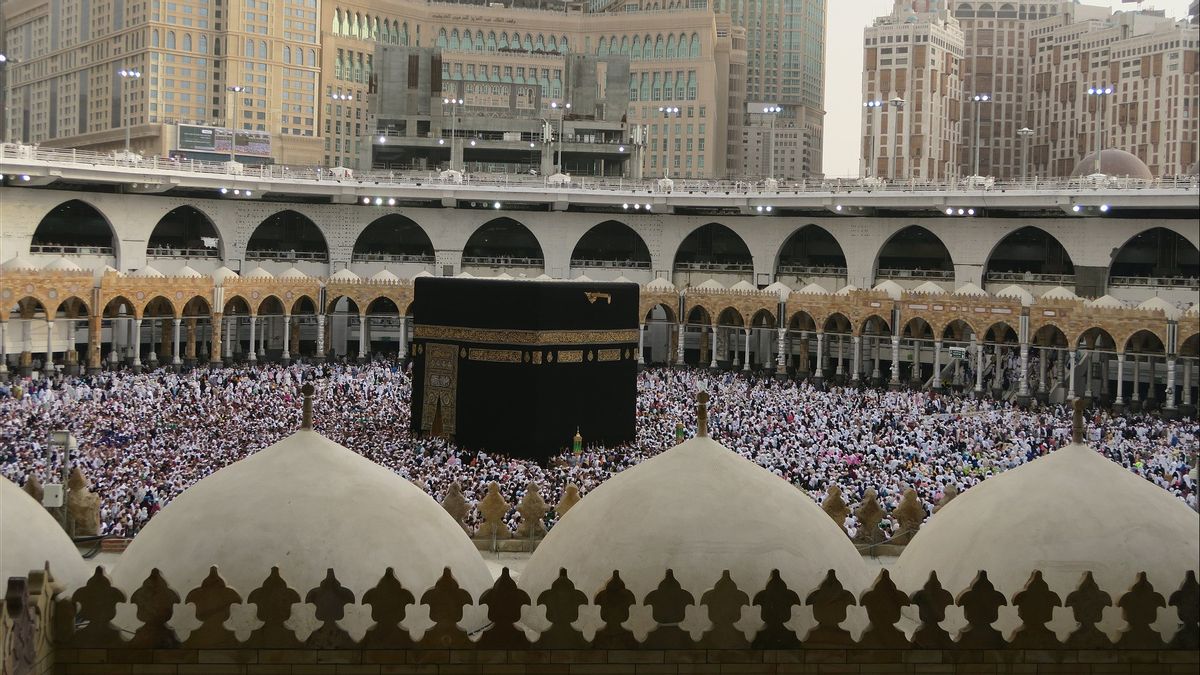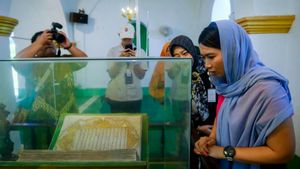JAKARTA - For the second time, the Indonesian government canceled the departure of the pilgrims after the Dutch military aggression in 1946, according to the Minister of Religion (Menag) Fachrul Razi. Meanwhile, in Saudi Arabia itself, the authorities had closed the haj pilgrimage several times due to certain events, including the pagebluk.
"(Indonesia did not dispatch the congregation) in 1946, 1947 and 1948. At that time it was because of Dutch aggression," said Fachrul in an online discussion broadcast on the Zoom platform on Tuesday, June 9.
It's just that, said Fachrul, at that time there was no polemic, considering that the pilgrimage had not received as much attention as today and at that time was in a state of war. He also said that Saudi Arabia had closed the haj pilgrimage.
Saudi Arabia, as reported by Al-Jazeera, did close this 5th pillar of Islam. Including when Pagebluk happened some time ago.
Moments without HajjFirst, the major event that forced the government of Saudi Arabia to close down the haj pilgrimage was the attack on Mecca by the Qurmatian tribe. They argued that the worship was a ritual of the pagans.
As a result of the incident about 30 thousand people were killed. "The Qarmatian invasion is a major incident, it is an important event in the history of Islam," the Islamic scholar cum Imam of the Irish Islamic Center, Umar al-Qadri, told Aljazeera.
Qadri said, Abu Tahir al-Jannabi who led the raid not only attacked Mecca but also trampled on the holy symbol of Islam. During the incident, Abu Tahir had looted the Black Stone.
They also desecrated the Well of Zamzam near the Ka'bah by throwing the bodies of pilgrims who had died into it. The Hajar Aswad was only returned to Makkah 20 years later, after the war had stopped.
Moving on to the 19th century, the cholera epidemic caused the suspension of the pilgrimage in 1837 and 1846. Likewise when the Ebola outbreak occurred in 2014.
It is known, between 1830 and 1930, there were at least 27 outbreaks of cholera among pilgrims in Makkah. In 2014, the Government of Saudi Arabia temporarily suspended Umrah and Haj visas for Guineans, Liberians and Sierra Leoneans.
Another incident was when armed groups of four hundred to five hundred people attempted to occupy the Grand Mosque in November and December 1979. The attacks forced the government to close the Grand Mosque for two weeks. The hijacking was led by a former Saudi soldier, Juhayman bin Muhammad ibn Sayf al-Otaybi.
At that time Otaybi tried to criticize the royal family and called for a return to the original teachings of Islam. The siege only ended after Saudi troops retook the mosque with the help of the French Police.
The English, Chinese, Japanese, Arabic, and French versions are automatically generated by the AI. So there may still be inaccuracies in translating, please always see Indonesian as our main language. (system supported by DigitalSiber.id)













